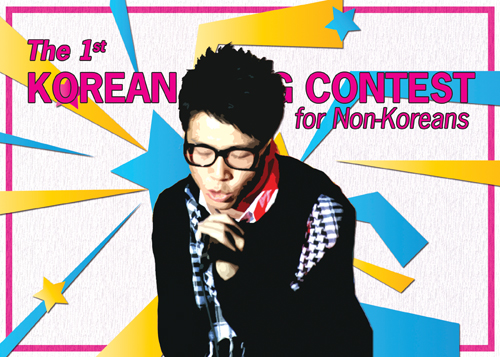By Vivian Nguyen
Northwest Asian Weekly
 Image by Han Bui/NWAW |
In her spare time, 15-year-old Vanessa Yamat enjoys singing at Korean karaoke houses with her friends. The teenagers dance and belt out songs from popular Korean musicians. For brief moments, they become Korean pop stars in their tiny karaoke room.
While Yamat and her friends share a love for singing Korean pop songs — commonly known as K-Pop — there is one noticeable difference between them. All of her karaoke friends are Korean American.
Yamat, however, is Filipino American. And she amazes her friends with her ability to sing Korean pop songs with ease.
A friend first exposed Yamat to Korean pop music two years ago. “I thought [K-Pop] was weird at first,” said the Stadium High School student.
However, the foreign music quickly grew on her and she started learning the meanings of her favorite K-Pop songs. She also worked on pronunciation, so that she could properly sing along. She has since learned how to read and write Korean.
Radio Hankook reaches out to non-Koreans
Yamat will be one of 16 competitors in a Korean song contest for non-Koreans. The event will be hosted by Washington-based Korean radio station Radio Hankook.
The competition aims to unite people of different cultures and ethnic backgrounds within the local community, in addition to sharing Korean pop music culture with non-Koreans. All participants must sing a song in the Korean language. Contestants will be able to win various prizes, including round-trip airfare to Korea, a karaoke machine, and cash.
The contest was the idea of Radio Hankook’s Financial Manager Doris Haan. Haan, who is also the radio station owner’s daughter, said Radio Hankook has been on air for the last 13 years. Radio Hankook airs simultaneously on KSUH 1450-AM and KWYZ 1230-AM. The simultaneous broadcast allows Radio Hankook to reach a wide audience. The station currently reaches 200,000 Koreans, from Everett to Tacoma.
The Korean word “Hankook,” which means “Korea,” reflects the station’s Korean programming, which includes talk shows, Korean music, and both American and Korean news translated in Korean. Haan said the news outlet is essential for first-generation Koreans who cannot speak English.
Haan recently helped organize the preliminary round of the contest, which saw nearly 60 applicants spanning 14 different ethnicities, such as Mexican, Vietnamese, and Indonesian, audition for contestant spots in the final round.
“It’s amazing to see different members of the community come on stage and sing in Korean,” said Haan.
Korean music culture and foreigners
Haan believes that the Korean wave has taken America by storm the last few years. The Korean wave refers to the widespread popularity and acceptance of Korean culture around the world. This trend derives from the booming popularity of Korean TV dramas, according to Haan. The success of these Korean dramas opened international doors for Korean movies, pop music, food, and language.
Internet websites like YouTube.com have also played a pivotal role in making K-Pop music videos accessible to the world, especially to younger persons that are typically more Internet savvy.
“These pop stars are young, pretty, and good-looking,” said Haan, of the music artists that dominate the pop culture scene in Korea. “There is a lot of glamour … this is the appeal of K-Pop.”
For 31-year-old contestant Jacob Reidhead, karaoke was one of the easiest ways to communicate during his years-long teaching and education stints in Korea. Reidhead, who is white, is a graduate student at the University of Washington Department of Sociology. He works for the school’s Center for Korea Studies and has been studying Korean for 12 years.
“In Korea, karaoke is like a cross-cultural bridge. It’s a way of getting to know people and their true personalities,” said Reidhead.
“If I can go into a Korean karaoke room and sing — to just really put myself out there and be honest — it shows that I’m invested in the [Korean] culture.”
Reidhead also believes the cultural exchange is mutual. He noted that Koreans have grown more accepting of foreigners in popular culture, stating that non-Koreans have routinely appeared on television game shows in Korea. Reidhead has even appeared on one himself.
Acceptance of non-Koreans
For Reidhead, singing Korean karaoke is less about the glitzy K-Pop scene and more about acceptance.
“Korean culture has grown to receive acceptance in our community and there are many [non-Koreans] who share a love and an affinity for it,” he said. Like Yamat, Reidhead also frequents local Korean karaoke houses. He plans to practice for the competition by singing his contest song at his go-to karaoke joint.
Yamat says that some of her Korean American friends find her penchant for K-Pop music bizarre, as she is not Korean. This contest will be a way for her to connect with other ethnicities over Korean culture and music.
“It’s always been a dream to show people what I can really do,” said Yamat about her Korean music interests. “I’ve felt alone and had to hide a lot of [my ability and interest] in the past because people judged me for it. I never thought I would have the opportunity to perform like this.”
Yamat and Reidhead will both compete in Radio Hankook’s Korean song contest this Saturday, Jan. 15. The contest will be held from 6:00 p.m. to 8:00 p.m. at the Knutzen Family Theater in Federal Way. ♦
For more information, visit www.radiohankook.com.
Vivian Nguyen can be reached at info@nwasianweekly.com.




WOOOHOOO GO VANESSA <3